Early Childhood Education as the First Line of NCD & Climate Resilience Prevention
COP30 framework, aligned with the 4th Global Oral Health & Climate Action Plan
14 November 2025 · 15:00 CET · 09:00 EST · 06:00 PST · 22:00 ICT · 01:00 AEDT (next day)
14 November 2025 · 15:00 CET · 09:00 EST · 06:00 PST · 22:00 ICT · 01:00 AEDT (next day)

Isabelle Filliozat, France
Phd, Psychotherapist, Author, Institute for Professional Development
in emotional intelligence, psycho-social support and parenting
in emotional intelligence, psycho-social support and parenting
To Heal the Planet, We Must First Heal the Human. The Role of Early Emotional Regulation
and Daily Practices in the Prevention of NCDs and Planetary Harm
and Daily Practices in the Prevention of NCDs and Planetary Harm
Noncommunicable diseases are accelerating worldwide, while mental health has reached unprecedented fragility, and social trust continues to erode. These are not isolated trends but symptoms of “diseases of civilisation” — patterns rooted in early lifestyle and relational environments. In alignment with the global health community’s shift toward upstream prevention across the life course, this intervention argues that the most powerful health, equity, and climate strategies begin in early childhood.
Drawing on Developmental Origins of Health and Disease (DOHaD), neuroscience, and epigenetics, Dr Filliozat emphasises that emotional regulation, secure attachment, healthy breathing, posture, movement, sleep hygiene, and oral self-care are not “soft skills” but biological and behavioural determinants of lifelong health. The body is the first school of regulation. Executive function and empathy emerge only when physiological safety is present. Caring for children’s bodies and emotions is therefore not an optional investment, but a foundational condition for long-term societal resilience.
We must create early childhood ecosystems where educators, health workers, and families collaborate to cultivate daily micro-practices that reinforce embodiment, resilience, and pro-social behaviour. Such environments do more than prevent obesity, diabetes, and oral disease — they strengthen empathy, reduce violence, and enable human beings to be capable of cooperation and future-oriented responsibility.
Climate adaptation is not only technological — it requires emotionally regulated humans able to stay engaged and act with care. By embedding emotional literacy, oral–respiratory health, and embodied self-regulation into the earliest years of life, early childhood education becomes a strategic lever for planetary resilience and intergenerational sustainability.
Drawing on Developmental Origins of Health and Disease (DOHaD), neuroscience, and epigenetics, Dr Filliozat emphasises that emotional regulation, secure attachment, healthy breathing, posture, movement, sleep hygiene, and oral self-care are not “soft skills” but biological and behavioural determinants of lifelong health. The body is the first school of regulation. Executive function and empathy emerge only when physiological safety is present. Caring for children’s bodies and emotions is therefore not an optional investment, but a foundational condition for long-term societal resilience.
We must create early childhood ecosystems where educators, health workers, and families collaborate to cultivate daily micro-practices that reinforce embodiment, resilience, and pro-social behaviour. Such environments do more than prevent obesity, diabetes, and oral disease — they strengthen empathy, reduce violence, and enable human beings to be capable of cooperation and future-oriented responsibility.
Climate adaptation is not only technological — it requires emotionally regulated humans able to stay engaged and act with care. By embedding emotional literacy, oral–respiratory health, and embodied self-regulation into the earliest years of life, early childhood education becomes a strategic lever for planetary resilience and intergenerational sustainability.

Dr. Ursula Stenger, Germany
Professor of Educational Science with a focus on Early Childhood at the University of Cologne
Empowering Early Childhood Education for Climate Resilience and Sustainable Futures through embedded health practices
We understand early childhood education as the first institutional space where the foundations of lifelong health, equity, and planetary responsibility are formed — not only cognitively, but through the daily shaping of breath, posture, movement, emotional regulation, and relational awareness. At a time when children are increasingly exposed to comorbid risks across mental, oral, respiratory, and climate-related stress pathways, we see education not as a downstream site of remediation but as an upstream ecological system of prevention and resilience.
In alignment with the WHO Global Oral Health Action Plan (2023–2030), the UN preparatory process toward the 2025 NCD Political Declaration, and Point 25 of the Bangkok Declaration on the rising co-occurrence of oral and other NCDs, we propose that daily regenerative practices — mindful breathing and movement, nature-based aesthetic rituals, embodied experiences of care and reciprocity — be structurally embedded into early childhood pedagogy rather than treated as optional additions. Such practices activate Strategic Area 2 priorities by strengthening embodied self-regulation, reducing stress reactivity, supporting healthy oral–respiratory function, and fostering ethical imagination and planetary connectedness from the earliest years.
We will outline how these practices can be integrated into curricula, educator training, and family participation within a primary health care and whole-of-society framework, supported by gentle indicators such as co-regulation, attentional resilience, oral–motor function, and educator well-being. We argue that this transformation of early education into a culture of embodied prevention is critical for sustaining hope — and for enabling communities to live well together on a changing planet.
In alignment with the WHO Global Oral Health Action Plan (2023–2030), the UN preparatory process toward the 2025 NCD Political Declaration, and Point 25 of the Bangkok Declaration on the rising co-occurrence of oral and other NCDs, we propose that daily regenerative practices — mindful breathing and movement, nature-based aesthetic rituals, embodied experiences of care and reciprocity — be structurally embedded into early childhood pedagogy rather than treated as optional additions. Such practices activate Strategic Area 2 priorities by strengthening embodied self-regulation, reducing stress reactivity, supporting healthy oral–respiratory function, and fostering ethical imagination and planetary connectedness from the earliest years.
We will outline how these practices can be integrated into curricula, educator training, and family participation within a primary health care and whole-of-society framework, supported by gentle indicators such as co-regulation, attentional resilience, oral–motor function, and educator well-being. We argue that this transformation of early education into a culture of embodied prevention is critical for sustaining hope — and for enabling communities to live well together on a changing planet.

Dr. Elin Eriksen Odegaard, Norway
Professor KINDknow Centre for Systemic Research on Diversity and Sustainable Futures, Western Norway University of Applied Sciences
Embedding Movement, Play, and Exploration in Early Childhood Education Systems as Everyday Pedagogies for Public and Planetary Health
The pedagogical principles of movement, play, and exploration remain central to fostering holistic child development. In the emerging “poly-crisis,” where environmental, social, and economic conditions increasingly affect early development, Early Childhood Education and Care (ECEC) institutions hold a unique responsibility for cultivating embodied resilience. In line with Strategic Area 7 of the WHO Global Oral Health Action Plan and the Bangkok Declaration’s call for environmentally sound, prevention-oriented early systems, we emphasise the potential of national preschool policy to embed daily movement, balance, breathing–posture regulation and self-care routines as integral—not peripheral—elements of early education. Such enriched pedagogical milieus create conditions in which bodily, emotional, cognitive, and social strength can develop as public health infrastructure.
The Norwegian MoveEarly project explores how systemic, play-centred exploration can enhance children’s agency, adaptive capacity, and long-term health trajectories. When embedded at the policy level, these practices can contribute not only to individual thriving, but to more resilient, sustainable communities—advancing the vision of the UN Political Declaration on NCDs (2025) by positioning early education as a foundational site of societal health and planetary responsibility.
The Norwegian MoveEarly project explores how systemic, play-centred exploration can enhance children’s agency, adaptive capacity, and long-term health trajectories. When embedded at the policy level, these practices can contribute not only to individual thriving, but to more resilient, sustainable communities—advancing the vision of the UN Political Declaration on NCDs (2025) by positioning early education as a foundational site of societal health and planetary responsibility.

Adele Diamond, USA
Professor, Psychiatry Department, University of British Columbia
Why Attention to Executive Functions Early in Life is so Critical for Disease-Prevention and Health Throughout Life
Executive functions” (which include impulse control, delaying gratification, planning, problem-solving, strategizing, and seeing things from different and fresh perspectives) are fundamental for preventing Non-Communicable Diseases (NCDs), for all aspects of mental and physical health, and for wisely and creatively responding to any crisis, including the urgent planetary one.
But, executive functions cannot emerge properly in children whose nervous systems are dysregulated by chronic stress, food insecurity, environmental pollutants, poor breathing patterns, disrupted sleep, or inadequate opportunities to develop proper posture, balance, or motor coordination.
Neuroscience now clearly shows the fundamental interrelations between the environment, mind, and body, and between motor development and cognitive development. Embodied regulation — breath, movement, rhythm — shapes the development and functions of the brain’s prefrontal cortex in fundamental ways.
There’s a bidirectional relationship between executive functions and the prefrontal cortex, which underlies them, and the state of our planet. While lack of access to green space, healthy food, air, or water impairs executive functions, it is also absolutely true that our health and the behaviors that support human and planetary health cannot be sustainably achieved downstream if executive functions and their underpinnings are not cultivated upstream in the first years of life. This is no longer a hypothesis — it is a biological proven urgency.
But, executive functions cannot emerge properly in children whose nervous systems are dysregulated by chronic stress, food insecurity, environmental pollutants, poor breathing patterns, disrupted sleep, or inadequate opportunities to develop proper posture, balance, or motor coordination.
Neuroscience now clearly shows the fundamental interrelations between the environment, mind, and body, and between motor development and cognitive development. Embodied regulation — breath, movement, rhythm — shapes the development and functions of the brain’s prefrontal cortex in fundamental ways.
There’s a bidirectional relationship between executive functions and the prefrontal cortex, which underlies them, and the state of our planet. While lack of access to green space, healthy food, air, or water impairs executive functions, it is also absolutely true that our health and the behaviors that support human and planetary health cannot be sustainably achieved downstream if executive functions and their underpinnings are not cultivated upstream in the first years of life. This is no longer a hypothesis — it is a biological proven urgency.

Dr. Joel Monzee, Canada
Doctor of Neuroscience, Institute of Psychology and Neuroscience
Neurophysiological and Psychosocial Determinants of Early Childhood Mental Resilience and Oral-Health Behaviours in the Context of Climate Stress
It can no longer be denied that climate change and overlapping crises are exerting profound effects on children’s development. The prevalence of anxiety, stress-related dysregulation, and other psychiatric vulnerabilities rises year after year — and the children who are now affected will soon become adults and parents who must navigate the consequences of today’s decisions. We therefore carry a direct responsibility to ensure that the youngest generation retains the neurophysiological and emotional resources required for the sustainability of humanity itself.
Mental health is not merely the absence of disorders, but the presence of secure attachment, regulated stress physiology, protective lifestyle habits, and resilience — all formed within relational and environmental conditions. As recognized by the WHO Global Oral Health Action Plan and reaffirmed in the Bangkok Declaration (Points 10 & 12), these psychosocial foundations constitute upstream determinants of health, directly shaping oral behaviours such as diet regulation, breathing and sleep hygiene, and self-care — all of which define long-term NCD risk trajectories.
If early environments are destabilized — by toxic stress, climate anxiety, or weakened caregiver capacity — the impact propagates across generations. We now need a practical, transdisciplinary response: one that equips educators and communities with frameworks to reduce toxic stress, stabilise emotional security, and strengthen resilience within daily routines. This is not only a question of prevention, but of safeguarding the human capacity to live, care, and act responsibly on a rapidly changing planet — as emphasized in the UN Political Declaration on NCDs (2025) and its call for early-life, whole-of-society action.
Mental health is not merely the absence of disorders, but the presence of secure attachment, regulated stress physiology, protective lifestyle habits, and resilience — all formed within relational and environmental conditions. As recognized by the WHO Global Oral Health Action Plan and reaffirmed in the Bangkok Declaration (Points 10 & 12), these psychosocial foundations constitute upstream determinants of health, directly shaping oral behaviours such as diet regulation, breathing and sleep hygiene, and self-care — all of which define long-term NCD risk trajectories.
If early environments are destabilized — by toxic stress, climate anxiety, or weakened caregiver capacity — the impact propagates across generations. We now need a practical, transdisciplinary response: one that equips educators and communities with frameworks to reduce toxic stress, stabilise emotional security, and strengthen resilience within daily routines. This is not only a question of prevention, but of safeguarding the human capacity to live, care, and act responsibly on a rapidly changing planet — as emphasized in the UN Political Declaration on NCDs (2025) and its call for early-life, whole-of-society action.

Silvia C. Dubovoy, USA
Ph.D. Off-Site Affiliate Professor, Loyola University Maryland
The Environment as Blueprint: How First Relationships Shape the Brain for Oral & Planetary Health
A child’s emotional and physiological world begins in the womb. This session presents evidence that a thoughtful and committed caregiver, through nurturing routines in the first 1,000 days, influences self-regulation, feeding, breathing, chewing, sleep, and hygiene habits that form the foundations for lifelong health, learning, resilience, and participation in society.
Grounded in developmental neuroscience and Montessori-informed practice, we explore how calm, predictable, low-stress environments foster trust, emotional security, and healthy embodied habits — including water-first choices, reduced free sugars, balanced movement and posture, proper breathing, and early oral care.
Guided by scientific observation and values of dignity, equity, and care for the environment, this session positions early caregiving as a quiet infrastructure of sustainability — strengthening the human foundation required for families, communities, and future generations to thrive in a changing world.
Grounded in developmental neuroscience and Montessori-informed practice, we explore how calm, predictable, low-stress environments foster trust, emotional security, and healthy embodied habits — including water-first choices, reduced free sugars, balanced movement and posture, proper breathing, and early oral care.
Guided by scientific observation and values of dignity, equity, and care for the environment, this session positions early caregiving as a quiet infrastructure of sustainability — strengthening the human foundation required for families, communities, and future generations to thrive in a changing world.

Dr. Karen Spruyt, France
Professor of the National Institute of Medicine and Health (INSERM) and the University of Paris
Sleep Equity: The Overlooked Frontier in Child Health
Sleep is one of the earliest and most sensitive indicators of a child’s autonomic regulation and metabolic health — yet inequities in sleep begin in infancy and follow social, environmental, and structural fault lines. Disrupted sleep is not a neutral inconvenience: it predicts behavioural dysregulation, emotional vulnerability, immune stress, impaired learning, and the emergence of oral–respiratory dysfunctions that drive noncommunicable disease (NCD) risk across the life course.
Evidence shows that breathing-related sleep disruption in early childhood is closely linked to attentional difficulties, excess weight gain, and oral health decline — especially among children growing up in stressful environments or without access to preventive care. These patterns not only reflect biological vulnerability but also inequities that become biologically embedded.
This talk examines the emerging science, the social drivers of sleep inequities, and practical strategies to ensure that healthy sleep is recognized — and protected — as a foundational right for every child.
Evidence shows that breathing-related sleep disruption in early childhood is closely linked to attentional difficulties, excess weight gain, and oral health decline — especially among children growing up in stressful environments or without access to preventive care. These patterns not only reflect biological vulnerability but also inequities that become biologically embedded.
This talk examines the emerging science, the social drivers of sleep inequities, and practical strategies to ensure that healthy sleep is recognized — and protected — as a foundational right for every child.

Dr. Umakanth A. Katwa, USA
Director, Sleep Center & Sleep Laboratory, Boston Children’s Hospital; Instructor in Pediatrics, Harvard Medical School
From Reactive Treatment to Functional Early Detection: Positioning Sleep and Oral Function as Policy Imperatives for Early Risk Identification and Whole-System Transformation in the NCD Agenda
Sleep-breathing disorders and oral-functional disturbances often emerge in early childhood as the first physiological indicators of systemic dysregulation. Subtle deviations—such as altered nasal breathing, tongue posture, and orofacial muscle tone—precede more visible manifestations of chronic disease and behavioural or cognitive decline. Recognizing these early functional markers enables a shift from reactive, symptom-based care to proactive health-system integration.
This presentation explores how early detection of sleep-breathing and oral-functional patterns can serve as a structural entry point for upstream NCD prevention. Evidence from interdisciplinary paediatric and dental pathways demonstrates the feasibility of embedding functional screening protocols within existing health-service frameworks. The discussion situates these approaches within current WHO policy directions for integrated, people-centred care, highlighting their relevance to oral-health governance, workforce transformation, and the reduction of health inequities through early functional assessment.
This presentation explores how early detection of sleep-breathing and oral-functional patterns can serve as a structural entry point for upstream NCD prevention. Evidence from interdisciplinary paediatric and dental pathways demonstrates the feasibility of embedding functional screening protocols within existing health-service frameworks. The discussion situates these approaches within current WHO policy directions for integrated, people-centred care, highlighting their relevance to oral-health governance, workforce transformation, and the reduction of health inequities through early functional assessment.

Alison Baulos, USA
Executive Director, Center for the Economics of Human Development, The University of Chicago
The Economic Irreversibility of Delayed Action: Why Early Prevention Is Not a Moral Choice – but an Economic Law
James J. Heckman’s Nobel-winning research proved that the earliest years of life determine the trajectory of human capital formation — and that interventions made later are both less effective and dramatically more expensive. Today, the data are conclusive: by the time schooling begins, inequality in metabolic stress, oral-health behaviors, sleep regulation, and self-regulation is already encoded — with economic consequences that predict NCD burden, productivity loss, and intergenerational cost transfer.
This session positions early childhood education not as care, but as the first macroeconomic instrument within the NCD and climate resilience strategy. Investments that embed protective daily health practices (breathing, sleep, oral hygiene, diet regulation) outperform any downstream medical or compensatory spending — across health, education, workforce, and social protection budgets.
In simple terms: not acting in the first five years is no longer neutral — it is fiscally irrational. Prevention is now an economic obligation.
This session positions early childhood education not as care, but as the first macroeconomic instrument within the NCD and climate resilience strategy. Investments that embed protective daily health practices (breathing, sleep, oral hygiene, diet regulation) outperform any downstream medical or compensatory spending — across health, education, workforce, and social protection budgets.
In simple terms: not acting in the first five years is no longer neutral — it is fiscally irrational. Prevention is now an economic obligation.
Photo credits: Centerpartiet (official)/Flickr/CC BY 2.0
All text, photo, and video materials belong to their owners and are for demonstration purposes only. Please do not use them in commercial projects.
All text, photo, and video materials belong to their owners and are for demonstration purposes only. Please do not use them in commercial projects.
